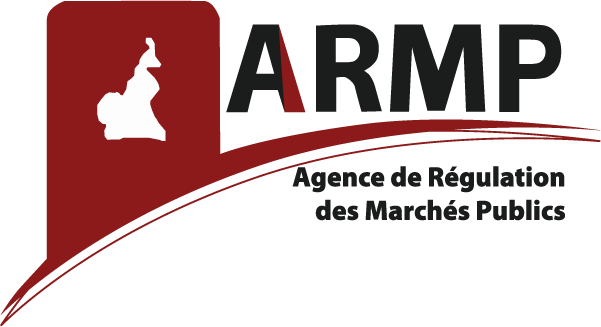The Government of the Republic of Cameroon is implementing, with the financial and technical support of the World Bank, the Emergency Project to Combat the Food Crisis in Cameroon (PULCCA).
Indeed, the food insecurity situation in Cameroon is very worrying. The most recent Cadre Harmonisé estimates from October to December 2021 show that 2.43 million Cameroonians face severe and high food insecurity conditions, and almost a quarter of a million face humanitarian emergency conditions. This situation is not expected to improve and projections from June to August indicate 2.3 million people facing acute food insecurity.
The reduced availability and accessibility of food, particularly in regions affected by conflict and therefore less accessible, requires in certain cases the use of humanitarian food aid. Furthermore, the low level of accessibility due to rising food prices and low incomes is likely to increase food insecurity in Cameroon. Currently, commodity prices are rising and increasingly volatile despite government restrictions on grain exports. In addition to high prices, limited livelihood opportunities, compounded by the impacts of COVID-19, are a major cause of food insecurity.
To meet these challenges, coupled with vulnerability to climate shock, the Cameroonian government has adopted a coherent set of political and strategic texts which take due account of the agricultural sector. The proposed project: (i) responds to the priorities identified in SND30, the CSAIP and those of the National Pastoral Contingency Plan (PNCP). The PNCP focuses on increasing livestock and fisheries production, and prioritizes the participation of women and youth, particularly in the North West, South West and South West regions. 'Far North; and (ii) also constitutes a direct response to the support of several GoC programs and mandates in agriculture and livestock.
PULCCA is organized for this purpose around the following four technical components:
- Component 1: “Support for food and nutritional stabilization of the rapid response with a view to rapid recovery and strengthening resilience” which aims to address the immediate needs of food insecurity in the areas targeted by the project.
- Component 2: “Strengthening the production capacities of smallholders through crop and livestock support for climate and nutritional resilience” whose objective is to improve sustainable production, including post-harvest management, processing and market access for producers.
- Component 3: “Support for strengthening government capacities for monitoring food security crises, information systems and agro-meteorological services” through strengthening information systems and preparedness capacity so that Cameroon can minimize humanitarian costs and socio-economic consequences of future food security crises.
- Component 4: “Project coordination, management, communication, and monitoring” which will cover the costs of implementing Project activities.
The project is implemented by a Project Management Unit (PMU) based in Limbe in the South-West region. The other different areas of intervention of the project are the Far North, Adamaoua, the East and the North West.
On the security front, Cameroon has since experienced a situation of security crisis and armed conflict due to repeated attacks by non-state armed groups (the separatist groups of the North West and South West since 2016 and the Boko Haram in the Extreme -North since 2013). This situation has led to an unprecedented humanitarian crisis in these 03 regions. Attacks against civilians, defense and security forces and targeted assassinations have increased, leading to a deterioration of the humanitarian situation and massive population movements as well as the closure of many public services, particularly in the regions. cited above.
This security crisis has also had a major impact on daily life in the North-West and the South-West. Nearly 700,000 children have been out of school due to the education boycott imposed by separatists and the insecurity affecting the sector. Since the gradual reopening of schools, following a period of several months of closure due to Covid-19 restrictions, a notable increase in enrollment rates has been followed by a spike in attacks on education, thus weakening the situation and the social fabric, in addition to inter-ethnic and intra-community conflicts, the multifaceted abuses of Boko Haram in the Far North to which are added cross-border crime and banditry of all kinds.
Under these conditions, it is important to systematically identify and evaluate the security risks present which could limit the smooth running of PULCCA activities on food security, delay its implementation and socio-economic development and affect the different parties. stakeholders, a Safety Management Plan has been developed and will be implemented.
The security situation constitutes a major difficulty for the peaceful implementation of project activities.
To deal with this situation and with the aim of reducing security risks, the PULCCA project is considering the recruitment of a security coordinator to implement the Security Management Plan (SMP) developed by the project.
It is in this movement that the PULCCA plans to recruit a Coordinator Security over the period 2023-2025.
THE safety coordinator, under the direct responsibility of the Project Management Unit Coordinator (PMU), is the focal point responsible for ensuring the proper management of the safety and security of the teams and partners implementing the said project. As such :
- He supports the Project Coordinator in the implementation of a coherent and adapted framework for security management.
- He represents the project, by delegation, in coordination meetings on security and humanitarian access, with the civil and military authorities in the project intervention areas.
- He keeps the plans, procedures and tools used in terms of safety and security up to date.
- He day before the regular training of teams in security matters and the capacity building of the staff under their responsibility, in particular the security agents or, if necessary, the security company.
More specifically, in terms of :
The security coordinator's contract will be concluded for a period lasting until the end of the PULCCA project scheduled for December 31, 2025. It takes into account a trial period of three (03) months.
Depending on their performance, the occupant of the position could be reappointed. Renewal can only take place if the performance evaluation is deemed satisfactory for the project.
The location of the position is Limbé, at the headquarters of the PULCCA Management Unit.
Funding: Credit IDA N°7116- CM PROJECT MANAGER: MINADER
PROJECT MANAGEMENT UNIT (PMU)
The expression of interest files will be submitted either in physical version (05 copies including 01 original and 4 copies) at the headquarters of the Emergency Project to Fight the Food Crisis (PULCCA), located in the Karata district, tiled R+2 building with the roof painted red, MUKUDA Road, Limbe 1st, or in electronic version to the address upmpulcca@gmail.com with a copy to moisendjock@gmail.comand mayoadam806@yahoo.frat the latest 27th March 2024. The files must be marked:
The composition of the application file is as follows:
- A cover letter; A detailed curriculum vitae; Certificates and/or certified work certificates for the declarations appearing in the CV; Legalized photocopies of diplomas; A legalized copy of the national identity card (CNI) and a criminal record extract dating back less than 3 months.
For any need for additional information in relation to this Notice of Expressions of Interest (AMI, interested parties can write between10:00 a.m. and 3:00 p.m.to upmpulcca@gmail.com with a copy to elsiddik22@gmail.com or through the following contacts:692 86 59 24/ 694 012 597.
3.1. Knowledge and skills
The safety coordinator must have the profile, skills and knowledge below:
- Be of Cameroonian nationality ;
- Have at least a Bac+4 level diploma or equivalent in safety/security, or in social or human sciences;
- Have at least three (03) years of professional experience as a specialist or manager of security in general and security in particular;
- Have at least three (03) years of significant experience in safety/security procedures and management;
- Have a good knowledge of humanitarian standards and principles;
- Have good experience in methods of collecting and analyzing safety/security data;
- Have an excellent command of French and English, good report writing skills;
- Have a good command of IT tools (word processing, spreadsheets, Internet and Intranet, etc.);
- Good knowledge and direct experience of World Bank security or safety requirements would be an asset.
3.2. Know-how
- Interpersonal skills ;
- Great communication skills;
- Excellent analytical potential and editorial quality;
- Be physically able to travel in intervention areas;
- Stress management.
3.3. Expertise
- Have professional integrity and the ability to work in a team and under pressure;
- Have a strong sense of teamwork;
- Have a spirit of initiative and rigor in processing files;
- Have a strong sense of priority management;
- Have writing skills ;
- Have a high sense of work organization, especially in emergency situations.
SPECIAL CONDITIONS
- Be of good moral character;
- Be in good physical and mental health;
- Be immediately available.
- 1. SELECTION PROCEDURES
The Consultants will be selected by the Individual Consultant Selection (ICS) method as defined in paragraphs 7.34, 7.36 and 7.37 of the Procurement Regulations for Borrowers Requesting Investment Project Financing (FPI), November edition 2020
The expression of interest files will be submitted either in physical version (05 copies including 01 original and 4 copies) at the headquarters of the Emergency Project to Fight the Food Crisis (PULCCA), located in the Karata district, tiled R+2 building with the roof painted red, MUKUDA Road, Limbe 1st, or in electronic version to the address upmpulcca@gmail.com with a copy to moisendjock@gmail.comand mayoadam806@yahoo.frat the latest 27th March 2024. The files must be marked:
“FOR THE ATTENTION OF THE COORDINATOROF THE PROJECTEMERGENCY FIGHT AGAINST THE FOOD CRISIS (PULCCA):
NOTICE FOR EXPRESSIONS OF INTEREST N°001/AMI/MINADER/PULCCA/UGP/SPM/SJPM/2024 OF 13 MARCH 2024
FOR THE RECRUITMENT OF A SECURITY COORDINATOR WITHIN THE MANAGEMENT UNIT OF THE EMERGENCY PROJECT TO FIGHT AGAINST THE FOOD CRISIS (PULCCA) »
The files provided within the framework of this AMI remain the property of PULCCA.
The expression of interest files will be submitted either in physical version (05 copies including 01 original and 4 copies) at the headquarters of the Emergency Project to Fight the Food Crisis (PULCCA), located in the Karata district, tiled R+2 building with the roof painted red, MUKUDA Road, Limbe 1st, or in electronic version to the address upmpulcca@gmail.com with a copy to moisendjock@gmail.comand mayoadam806@yahoo.frat the latest 27th March 2024. The files must be marked:

